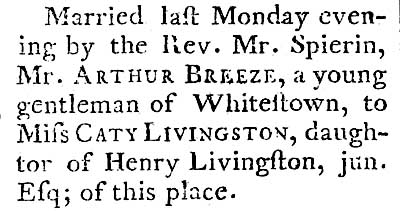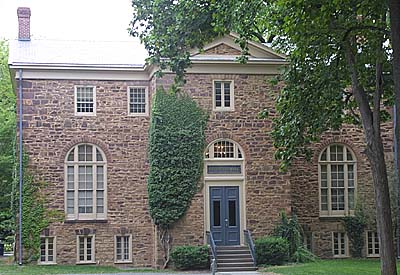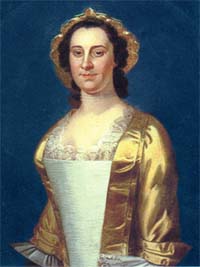[Samuel, Sidney]
Arthur Breese
 (11 Sep 1770, Shrewsbury NJ)
(11 Sep 1770, Shrewsbury NJ)
 (13 Aug 1825, NYC)
(13 Aug 1825, NYC)

+ Catharine Livingston 4 Nov 1793
4 Nov 1793
 (18 Aug 1775, Poughkeepsie NY)
(18 Aug 1775, Poughkeepsie NY)
 (21 Aug 1808, Utica NY)
(21 Aug 1808, Utica NY)
Children:
 Rear Admiral Samuel Livingston Breese
Rear Admiral Samuel Livingston Breese
 [married Emma Lovett and Frances Hogan Stout]
[married Emma Lovett and Frances Hogan Stout]
 Sarah Breese
Sarah Breese
 [married Barant Bleecker Lansing and James Platt]
[married Barant Bleecker Lansing and James Platt]
 Elizabeth Breese
Elizabeth Breese
 [married William Malcolm Sands]
[married William Malcolm Sands]
 Catharine Walker Breese
Catharine Walker Breese
 [married Capt. Samuel B. Griswold]
[married Capt. Samuel B. Griswold]
 Chief Justice Sidney Breese
Chief Justice Sidney Breese
 [married Eliza Morrison]
[married Eliza Morrison]
 Susan Breese
Susan Breese
 [married Jacob Stout, Jr. and Rev Dr Pierre Alexis Proal]
[married Jacob Stout, Jr. and Rev Dr Pierre Alexis Proal]
 Henry Livingston Breese
Henry Livingston Breese
 [died at age 13]
[died at age 13]
 Arthur Breese, Jr.
Arthur Breese, Jr.
 [died unmarried at age 33]
[died unmarried at age 33]
 Mary Davenport Breese
Mary Davenport Breese
 [married Henry Leonard Davis]
[married Henry Leonard Davis]

+ Ann Carpender 14 Oct 1809
14 Oct 1809
 (10 Nov 1783, NY)
(10 Nov 1783, NY)
 (17 May 1857, Utica NY)
(17 May 1857, Utica NY)
Children:
 Sarah Ann Breese
Sarah Ann Breese
 Josiah Salisbury Breese
Josiah Salisbury Breese
 [married Augusta Eloise Lawrence]
[married Augusta Eloise Lawrence]
 William Gregg Breese
William Gregg Breese
 [married Adeline Wiggins]
[married Adeline Wiggins]
 Frances Helen Breese
Frances Helen Breese
 [died unmarried aged 28]
[died unmarried aged 28]
 Robert Lenox Breese
Robert Lenox Breese
 [died aged 15]
[died aged 15]
 Aquila Stout Breese
Aquila Stout Breese
 [died aged 1]
[died aged 1]
Transactions of the Oneida Historical Society at Utica
The year before E.K. Kane was born, in 1794, there settled in Whitesboro another lawyer, who subsequently
became prominent in the politics of the county. That lawyer was a native of New Jersey, graduated at
Princeton College, read law in Philadelphia with the celebrated Elias Boudinot, was admitted to the bar in 1792,
and when he located in Whitesboro was but twenty-five years old. His wife was a sister [Niece]
of Mrs. Jonas Platt, and as Mr. Platt was county clerk of Herkimer county in 1794, he made
Arthur Breese, the lawyer alluded to, deputy county clerk. In 1796 Mr. Breese was elected to the Assembly,
as successto to Jonas Platt in that body, and when Oneida county was formed, in 1798, Mr. Breese was
appointed the first surrogate, and held that office for ten years thereafter; surely those brothers-in-law had
their share of offices. A law partnership between Messrs. Platt and Breese was formed, and their marriage,
business, social and political ties were strong indeed.
The first homestead of Mr. Breese in Whitesboro
was opposite the "Green," was known later as the "Storrs House," where the late Thomas H. Flandrau lived
many years, and which dwelling tradition says Mr. Breese erected. Later, Mr. Breese built a fine
residence on the hill near the cemetery, where Gideon Granger resided a number of years subsequent to 1814.
[p133. Mr. Curtenius died not far from 1817, and on the removal of the family in 1818 to
Whitesboro, Mrs. Curtenius purchased the Arthur Breese mansion which stood on the hill, near the cemetery,
giving in exchange one thousand acres of the Oswego lands. That mansion had been the residence
of Gideon Granger and family during their several years' residence in Whitesboro.]
As Mr. Breese was a federalist, the council of appointment in 1808 turned him out of the office of
surrogate, and about that time he moved to Utica. On Mr. Breese's removal to Utica, he was
made one of the clerks of the old Supreme Court, and he was also master in chancery. He was clerk of that
court from 1808 until his death.

He died in 1825, in the city of New York, where he had gone for his health. His age was fifty-five years.
Mr. Breese was not a prominent member of the bar, nor do the court proceedings show that he ever had much
to do as an attorney or counsel; but he was among the most worth of the citizens of the county, and very
highly respected and esteemed. While he and his family were residents of Whitesboro, they were valuable additions
to the society of the place.

He had quite a large family of children, all of whom were cultivated and refined.
Transactions of the Oneida Historical Society at Utica
April 6, 1792, the Grand Lodge of New York issued a warrant to establish a lodge in Herkimer county.
It was constituted by the name of Amicable Lodge, and situated in New Hartford. From 1792 to 1799, the following
members were admitted to the privileges of the Lodge:
1792 - Jedediah Sanger, Jard Crittenden, Isaac Jones, Jonas Platt, Arthur Breese, Benjamin Merrills, Elias
Kane...
Correspondence with President James Madison
Pioneers of Utica
By nature inactive in temperament and easy of disposition, Mr. Breese was yet possessed of strong sense and much personal worth, of sterling integrity, of large hospitality, and generous in his care for the religious, educational and other important interests of the town and neighborhood. He bore his part among the founders of the Oneida Bible Society and the Utica Academy, and as trustee of the village corporation, and of the Presbyterian Church, of which latter he was a communicant.
He was somewhat of an epicure, and fond of the delicacies of the table, his larder and ice-house being always well supplied, and he never so happy as when surrounded by his friends, to enjoy with him his good cheer. A capital judge of wines, his cellar was liberally stocked with choice kinds, of his own important. In manners he was quiet and rather taciturn, though cheerful and genial, with the looks and bearing of a thorough gentleman. His features were regular, his eyes large and expressive, and though, in later life, a little beyond embonpoint, he was in his younger days remarked for his personal beauty.
Families of Olde Whitesborough 1784-1824 p. 33
Arthur Breese graduated from Princeton University and received his honorary Bachelor's Degree from Yale
College in 1789, and following in the wake of the westward migration settled in Whitesboro in 1793. In 1808
he moved to Utica.


In 1801 Arthur Breese served jointly as the Inspector and also as Brigade Major of the 2nd Brigade of
Cavalry of the New York State Militia.
His home was on Main Street opposite the Village Green. After his arrival in Whitesboro in 1793 where he
became a partner with Jonas Platt, he also served as Deputy Oneida County Clerk. Jonas Platt was the Oneida
County Clerk at that time.
In 1796 he was elected to the New York State Assembly. In 1798 - 1808 he served as the first Surrogate
Judge of Oneida County NY.

On March 23, 1799 he was a member of the Aqueduct Association of the future Village of Whitesboro. He was one
of the first Trustees of The United Presbyterian Societies of Whitestown and Old Fort Schuyler in 1804 and 1805.
Arthur had 15 children: Nine by his first wife and six by his second wife.
Family Memorials - A series of Genealogical and Biographical Monographs, on the families of ...,
Breese, ...", Edward Elbridge Salisbury, 1885
At a very.early period in the settlement of the country [having received the honorary degree of Master of Arts
from Yale College in 1789 he was established at Whitestown, Oneida Co., N.Y., in the profession of the law. On the
creation of the clerkship of the Supreme Court for the Western District [in 1808], he received the appointment of
Clerk, and remained the incumbent until his death. He was a man of much personal and private worth, sterling
integrity and exemplary piety."

From 1808 onward his life was spent in Utica, N. Y., where he owned a beautiful house at the top of the hill on
Genesee street, with extensive grounds attached, and at that time quite rural in its surroundings. I well remember a
visit made there with my parents and sister, in our childhood, and the lively cousins we then first became acquainted
with --one of whom (I need not say a lady) made this playful record of it:
"The children were held up to us as models of propriety.... I was deputed to show them the garden and the grounds,
and told to pick all the fruit we wished, which they would not even taste without their mother's permission! This made
a lasting impression upon me, and I wondered whether all the children in Boston were so well brought up."
To the same lady's sprightly pen I owe the following reminiscences of this home of her childhood:
"No stranger of distinction passed through the town without dining, or partaking of fruit and wine, at the house,
which was one of the finest in the place at that period. My father was very hospitable, quite an epicure, and noted for
his good dinners and always very choice wines.
"When the Court was in session, the judges and lawyers were frequently entertained. Although scarcely in my teens,
I remember seeing Judges Savage, Woodworth, Van Ness, Sutherland and Platt - the latter was a connection of the
family, and resided for a time in Utica. Among many others whom I particularly remember
as constant guests were Judge Southard (formerly Secretary of the Navy), John Greig of Canandaigua, Gov. DeWitt
Clinton, Commodore Melancthon Woolsey, a near relation [descended, in common with Mrs. Judge Henry Livingston,
from Rev. Benjamin Woolsey of Dosoris, L. I., and, on the Livingston side, first cousin of the
first Mrs. Arthur Breese],23 and several officers of the U. S. Navy, that branch of the service having been always
largely represented in our family. I have an indistinct recollection of peeping through the crack of the door to catch a
glimpse of Commodore Chauncey, whilst he was dining with my father, and can recall visits paid by Commodores
Rogers and McDonough, the hero of the battle of Lake Champlain; Chancellor Kent, Col. Malcolm, and seeing the
great American novelist J. Fenimore Cooper.
"The venerable and greatly respected Patroon of Albany, Stephen Van Rensselaer, was an occasional guest....
"My mother [the second Mrs. Arthur Breese] was an accomplished housekeeper, presiding with grace and dignity at
her table, or in the drawing-room. On matters of taste she was authority in all cases. My lather used to plead, as an
excuse for such constant entertaining, his 'having a fine house, a graceful and capable wife, and a well-stocked larder'"
My cousin speaks of a visit of General Lafayette at her father's house in 1824, as follows:
"My father, who was then an invalid, and unable to be present at the reception, was told by the officer of the day that
the General and suite would pay him a visit, if he so desired. This exceptional courtesy enabled my parents, and a
considerable number of the elite of the city who had been invited, to enjoy the honor of an introduction."
"I can well remember my mother's tasteful decoration of the drawing - rooms with flowers, the display of old-fashioned
silver on the sideboard, and the table with choice wine and refreshments; and perfectly recall the personal appearance
of the distinguished guest, the cynosure of all eyes -- his gracious and courtly manners, as with hat in hand he walked
quietly up the broad steps of the piazza, and with much ease and apparent pleasure received the various
introductions. Upon the conclusion of this ceremony I was led by my father to the General, who laid his hand gently
on my head, and said 'God bless you, my dear!"
[This is the source of the family story told by my mother of my grandmother still having the glasses used when
they entertained Lafayette, but no one knowing which glass had been his.]






